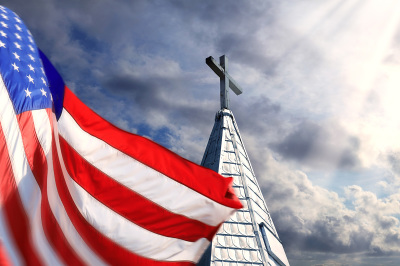‘Christian Nationalism’ and mocking victims

On Twitter, Stephen Wolfe, author of The Case for Christian Nationalism, claimed he didn’t know who Emmett Till was until he recently googled his name. He then commented: “Yea I’m supposed to care about some 1955 event that all the libs care about. Their minds are captured.”
Till was a 14-year-old 5 foot four inches black boy from Chicago who, while visiting rural Mississippi, was beaten to death, shot, tied to a 70-pound fan and thrown into a river by two white men. His offense was reputed to have whistled at a white woman. A local all-white jury quickly acquitted the killers, who openly boasted of their crime. Till’s mother demanded his body be returned to Chicago, where his disfigured face was displayed before thousands of mourners. The national outrage helped fuel the rise of the civil rights movement. Rosa Parks attended a solidarity rally for Till a few months later in Montgomery, Alabama, where young Martin Luther King Jr spoke. Soon afterwards she was famously arrested for defying segregation on a public bus.
So yes, Till was a teenage nobody whose brutal murder ultimately helped transform America. More than just “libs” care. The murders of nobodies often signify a great deal. The torture and unjust execution of an obscure Jewish preacher in a Roman province two thousand years ago transformed the world. In God’s eyes, nobodies are often very important, ultimately superseding many supposed somebodies.
Tom Holland’s Dominion: How the Christian Revolution Remade the World describes how the Gospel preached by that obscure Jewish preacher remarkably made nobodies somebodies. He recalls Blandina, a teenage slave girl in Lyon, France, tortured and killed because of her Christian faith in 177. She was merely a “slight, frail, despised woman,” who endured her sufferings with remarkable faith, for which she became an honored saint in the early church. “Set among the elite of heaven, seated directly within the splendor of God’s radiant palace, ahead of those who in the fallen world had been her immeasurable superiors, [she] was a potent illustration of the mystery that lay at the heart of the Christian faith,” Holland recounts. Blandina’s owner, a wealthy Christian woman, was also martyred in the Lyon arena. But her name is lost to history. In the economy of God, it’s the last who shall be first. “Those things reckoned by men low, and invisible, and contemptible, are precisely what God ranks as deserving of great glory,” wrote Irenaeus, a Lyon priest who later became a bishop and saint.
The elevation of nobodies into somebodies is a unique gift of Christianity to the world. All societies naturally esteem the rich, the powerful, the very strong, the very beautiful, the brilliant, and the people who sparkle. Ordinary people, especially if they are poor, unattractive, inarticulate, lacking in influence, are typically overlooked, or even despised. But the Bible says God looks at the heart, and God rejoices to elevate the despised over the mighty, to humble proud humanity, and to reveal His own glory. As John Wesley wrote, the people God uses most powerfully are often “the filth and off scouring of the world.”
Christianity’s elevation of the lowly has fueled centuries of charity, philanthropy, humanitarianism, and social reform. The weak and the vulnerable are no longer seen as the inconsequential natural servants of the strong, rich, and mighty. There is in God’s view an equality among all, and even a special preference for the humble and despised. In Gospel-influenced societies, there is even an exaltation of victims that would have shocked pagan societies, who disdained victims as losers. But Christianity worships a Victim who willingly sacrificed Himself. Many of His followers have been victims, including the Lyon slave girl Blandina.
In contemporary Western culture, the obsession with victimhood is often tiresome. There is now a glorification and power in victimhood. Self-professed victims get special attention and rights. We are victims too! We are not privileged! The ancient philosophers would be stunned by this turnaround. Nobody in ancient Rome or Athens, or ancient China, or prehistoric Africa or America, was seeking power through victimhood. Victims were at the bottom. They would have asked: who wants to be there, even rhetorically?
Tiresome as it sometimes is, our modern partiality to victims is a legacy of Christianity. It motivates us to at least seem to care about overlooked people. Despite all the hypocrisy and exploitation of the title, often by people who are themselves privileged, we can give thanks that in a Gospel-influenced society, victims matter. The lowly are in theory no less important than the mighty. This vision at least tries to approximate God’s Kingdom.
Mocking genuine victims hearkens to a more brutal, pre-Christian ethos in which strength and not lowliness is esteemed. Emmett Till was a brash Chicago teenage boy who didn’t know his place in the deep South, for which he was murdered, with no consequences for his killers. Who cares? Any sympathy for such a victim itself signals weakness, according to a natural pagan perspective.
Stephen Wolfe’s book The Case for Christian Nationalism extolls a fantasy Calvinist confessional state in which the elect rule over the lost and reprobate. God’s reputed people have the power, and the people less favored are their subjects, living under their rules. Its vision of power over service isn’t very Christian. And its subjugation of some people over others based on their religion isn’t very nationalist. It certainly isn’t at all American.
But disdaining Emmett Till’s murder, and the civil rights revolution it helped unleash, as part of the wider ongoing, 2000-year-old Christian revolution of equality and dignity for all, is helpfully clarifying.
Originally published at Juicy Ecumenism.
Mark Tooley became president of the Institute on Religion and Democracy (IRD) in 2009. He joined IRD in 1994 to found its United Methodist committee (UMAction). He is also editor of IRD’s foreign policy and national security journal, Providence.





















